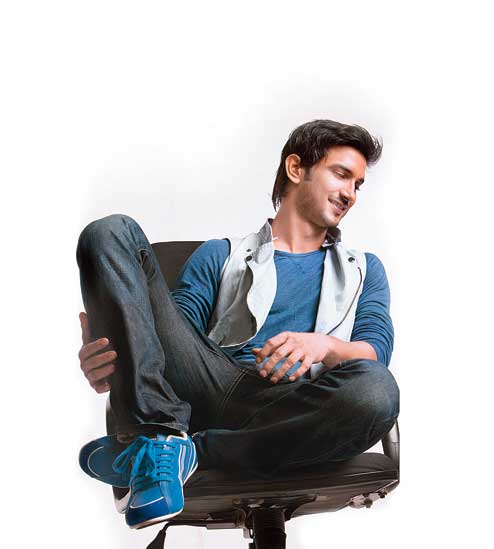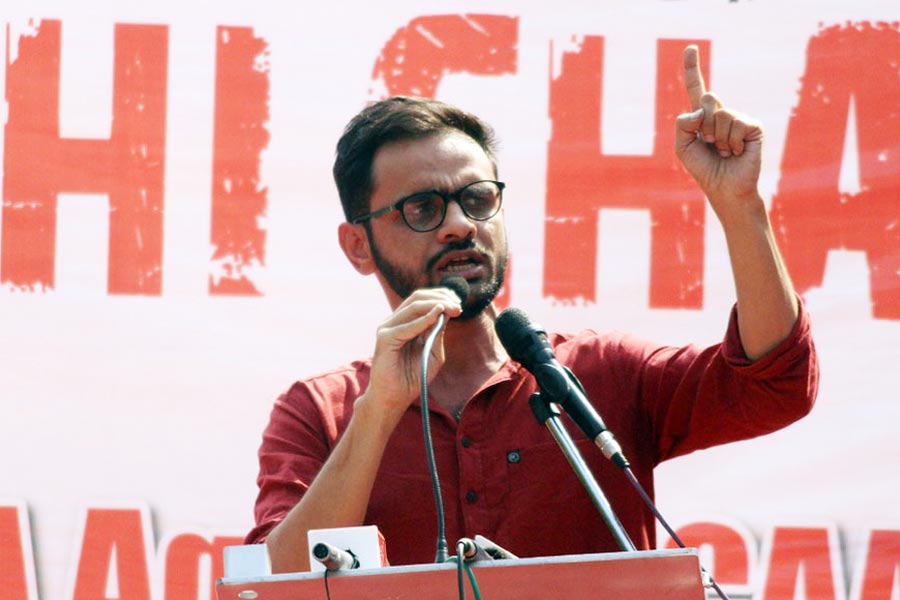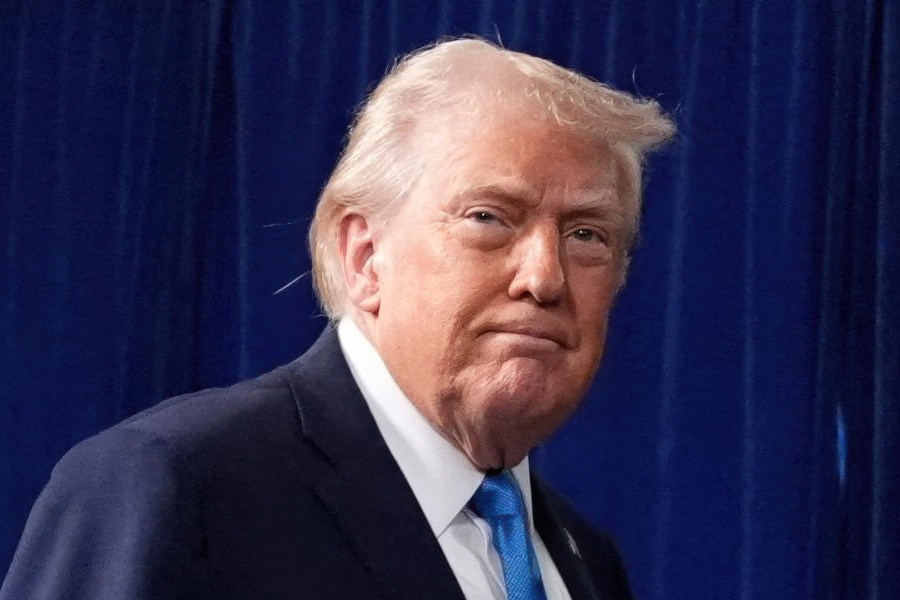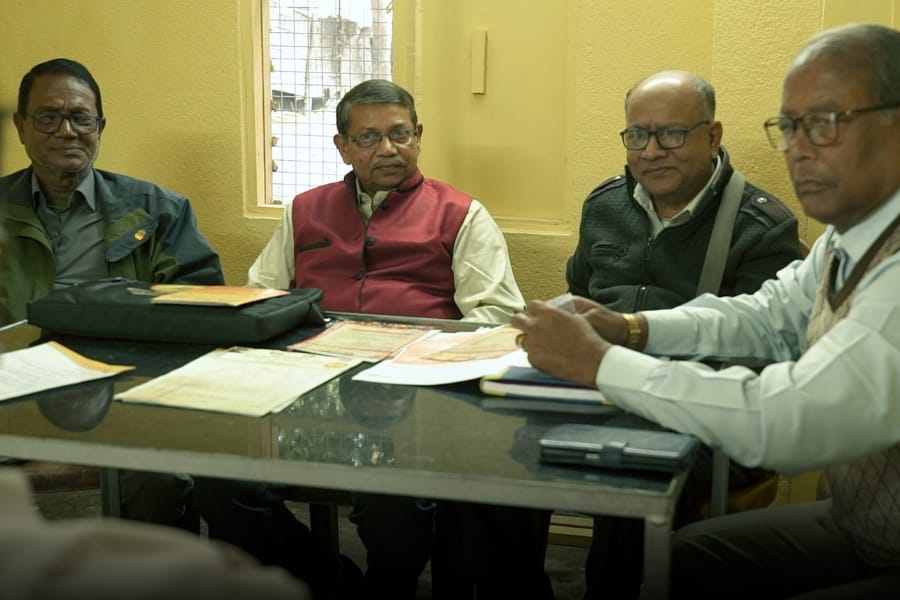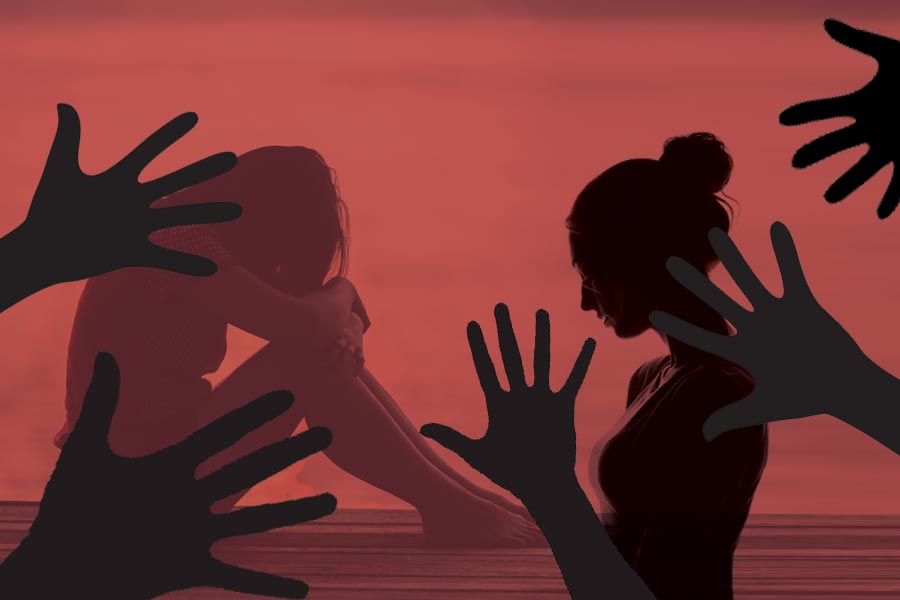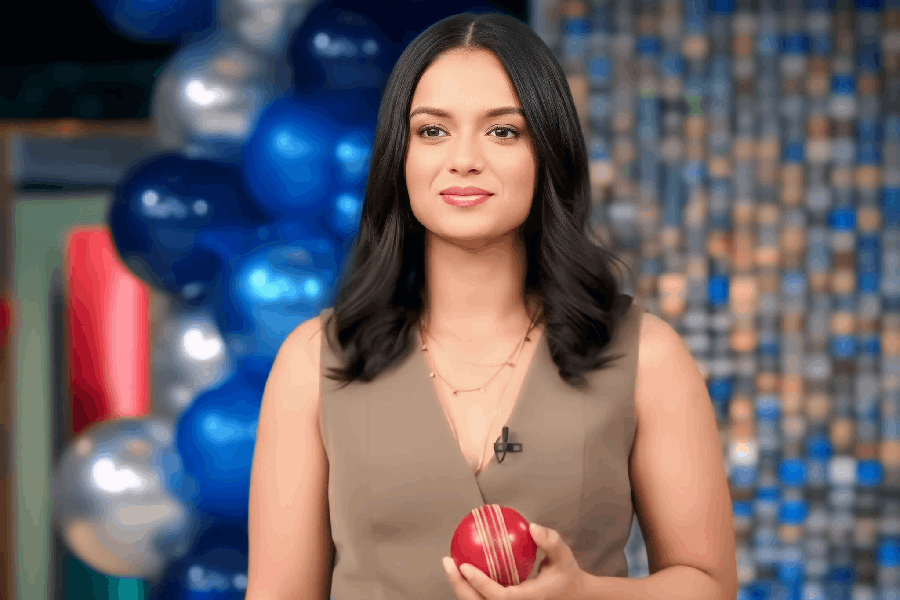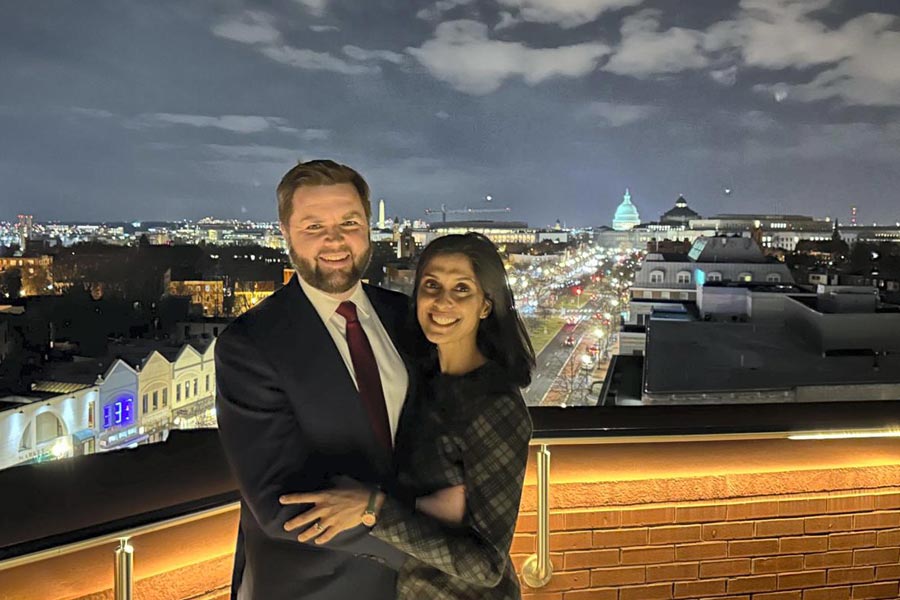
Few actors would follow up a Rs 100-crore hit with a play, but that’s exactly what Sushant Singh Rajput did last year. Instead of going on a signing spree after the massive success of M.S. Dhoni: The Untold Story, the actor got down to adapting the Alberto Moravia novel The Two of Us for stage. “The film that I was supposed to do after Dhoni got pushed, so I had a four-month gap. I had filmmakers who I wanted to work with approaching me, but we couldn’t find the right scripts that excited. So, I opted to do a play and didn’t make any money!” he says with a laugh.
Sushant is nothing like his contemporaries and his filmography is testament to that. In just four years, the actor has played one of the best-known sportsmen in India and an iconic Bengali literary character (Byomkesh Bakshi). His next is Raabta, a reincarnation love story that he started out not being interested in. t2 met the actor recently in the office of the film’s producer, T-Series, in Mumbai’s Andheri (west), for a chat on his life, work and loves.
In terms of business, M.S. Dhoni: The Untold Story was your biggest film. Did it change how the industry saw you?
I don’t think so. From my first film, I always had two films in hand. And they were films that I really wanted to do. Fortunately for me, no one has faulted my performance even in films that didn’t work. Before Dhoni was (Detective) Byomkesh Bakshy which didn’t work at the box office, but even then I had films coming my way.
Most actors would have milked the success and gone to town with interviews. You pretty much disappeared!
(Laughs) My excitement about a film lasts only till the last day of shoot. I am a very selfish actor. I realised this when I was studying engineering. Like on the Friday Byomkesh released, we knew that it wasn’t doing well. We had worked very hard on it. I was upset over the weekend. The same thing happened with Dhoni. By Saturday we knew that it would be a humongous hit. On Monday morning, I had moved on.
What excited me about adapting the Moravia book was that I didn’t know how to do it. I couldn’t sleep because I was so excited. When I don’t know how to do something, I get very excited. I am driven to learn something new. We are still working on that play. And now after Raabta, I am going to start another film that I don’t know how to tackle. That should keep me going for a few months.
When I started doing television, I had only done theatre. I knew how to act, but I didn’t know how to act in front of a camera. So, TV was a new and exciting experience for me. But after one-and-a-half years, it had gotten so repetitive that in the morning I knew what I would be doing through the day. The TRPs of my show (Pavitra Rishta) were really good and I was earning money for the first time, but I was suffocating there. I just couldn’t keep doing it. So my decisions are never driven by money, fame or success.

You quit TV because you got bored with the process. Do you see that happening with films?
No. The best thing about films is that the longest I’ll probably spend on a film would be a year. Doing Dhoni was tricky because he is immensely popular. I didn’t want to do an impression of him. People think method acting and spontaneity are different. But I think there is always a method to spontaneity. I prepare to know what not to do. What to do is what I figure out on the day of the shoot. I watched his videos for thousands of hours just to subconsciously pick up his mannerisms. It’s like how you learn a language... you might not know the grammar, but you pick up lines and phrases. Over a period of time, you start speaking that language without thinking. The process of becoming Dhoni is what was so exciting for me. I consciously pick characters that I don’t know how to play. And that’s what keeps me engaged.
Most actors who have come from outside Bollywood say how tough it’s for them to refuse films because there is so much uncertainty about money in this industry...
True.
Doesn’t that go through your mind when refusing a film?
No, because I tend to forget about things like that! (Laughs) I don’t plan so much. Also, I don’t obsess that much about the future. It might sound like a cliche, but I don’t think about the past or the future that much.
I was very ambitious at one point of my life. When I was studying engineering, I was trying to talk myself into dropping the course. I would tell myself, ‘If you start acting, you make a lot of money, you could have a house in Bandra and many cars’. Those were my incentives to take the plunge. But the moment I started doing what I love doing, money and fame weren’t that important anymore.
I come from a middle-class background and money was always a deciding factor on what one could or couldn’t have. I remember I wanted to go to a university in the US to study and I was told that we couldn’t afford it. I have always known the importance of money because we didn’t have so much when I was growing up. Also, I was a quiet kid who didn’t have so many friends, so the acknowledgement that comes when you are famous is a big thing. When I started doing TV, I suddenly started earning a lot of money and people started recognising me. It was just a heady time for me because money and fame were two things that I really wanted. But it didn’t take more than two-three months for both to lose their charm.
Fortunately, I was acting, which was something that I wanted to do. Look, I can do simple mathematics and I know how much money I need so I don’t have to go back home! (Laughs) In economics, you study about how much money is needed for survival and anything beyond that is a luxury. Buying a Maserati will make me happy for a day. It’s not like I don’t want all the luxuries that come my way, but it can’t get me excited enough to get out of bed five minutes earlier than normal... only a challenging role can.
You’ve delivered a huge hit. You have a house in Bandra, have bought your favourite car (a Maserati). So, are you content?
Noooo…! When I quit engineering and came to Mumbai, I did theatre for two-and-a-half years. I lived in a single room-kitchen with six other guys. We were all actors. We would wake up at 4.30am and go to the beach to do martial arts. We would have chai on our way back. Then from 10am to 1pm, I would have dance sessions and 3pm to 9pm was theatre. I would get back home and cook my own food. Even though all of us had to get up at 4.30am again, we would sit and talk about films till 1-1.30. That was the best phase. I might be doing really well and I might have the car of my dreams, but I can’t match that excitement. I was finally doing what I had always dreamt of doing.

This is your fourth year in the movie business. Have you got used to the trappings that come with being a movie star?
I don’t think I could ever get used to it. I am not a very outgoing person, so I really don’t like being discussed and definitely when I am not part of that discussion! (Laughs) I understand why fictional stories are cooked up. It would be easy for me to not get affected by these rumours, but I don’t want to do it. I feel one of the qualities that makes me the actor that I am is the ability to feel vulnerable. If I lose it, it would affect the work that I do. I don’t want to insulate myself.
You are one of the rare TV actors to have made that switch to films. What do you think worked for you?
To begin with, I think we need to stop thinking that actors “graduate” from TV to films. This is the first thing people and, especially television actors, need to stop thinking. I have never differentiated between mediums. Like I told you, I refused a lot of money after Dhoni to work on a play. It doesn’t matter where I am performing. I would perform at Prithvi (Theatre in Mumbai), in front of a TV or film camera or even with no camera. Acting gives me the opportunity, even for a fraction of a second, to let go of who I am.
You have to believe. I think TV actors start off doubting if they can become movie stars. You start thinking that only Shah Rukh (Khan) has done it and that was 20 years ago, so it’s going to be really difficult. So, doubts start creeping in. I also give the example of Roger Bannister (English middle-distance runner) who clocked the sub-four-minute mile for the first time. The very next year, 27 other runners ran a mile under four minutes. In that one year, no technology changed. What changed was that people started believing that they can do it.
Also, we (actors) tend to take ourselves very seriously. I am not saying don’t take your work seriously, but don’t get taken in by the persona that the world has created for you. A TV actor once told me that he refused a film because he wasn’t being given a single-door van! I couldn’t believe what he was saying. He thought a single-door van would get him respect. TV actors have money and fame, so they start off with an inflated sense of importance. I have realised that every time an honest film is made, it’s a very collaborative effort. You have to let go off everything and pitch in with all your skills.
My perception of you was that you aren’t friendly. Many even described you to me as aloof. That’s changed after this conversation... have you heard this from other people?
Yes (laughs). People have told me this. Let me explain why people probably think that about me. Acting was magical for me because I lacked the ability to communicate with people. Because it was so tough for me to talk to people, I convinced myself that I don’t have to talk to anyone. And, that’s how I was for the first 19 years of my life. I thought if I was very good in my studies, people would know I existed. But when I started acting, I found myself saying dialogues that mirrored what I really wanted to say to people. I found it easier to talk on stage because I could hide behind a character. That’s what made me want to act. I don’t have many friends because I lack the ability to open up to people.

Has being an actor then exposed that vulnerability in you? You are now expected to have conversations with strangers like me on a regular basis...
Right now, I am not feeling uncomfortable because we are having a very organic conversation. But if someone comes to me with a set questionnaire and is not really interested in a conversation then I find it very tough. Also, I find it tough to find people to talk about the subjects that really interest me.
Like what?
(Laughs) For the last one year, I have been fascinated by cognitive psychology and behavioural economics. I was always very interested in astrophysics or evolutionary psychology. I have managed to make a few friends who share similar interests. One of them is a 56-year-old theatre actor and another is Shekhar Kapur. When I try talking about these things with other people, they look at me like I have completely lost it!
I have just bought a massive telescope. We drive out of Mumbai to use it. We have a CD from NASA where they have converted the gravitational waves of planets to sound waves. So, you could look at Jupiter and be listening to the sound on your headphones. It is so eerily… so beautiful. It’s an experience I have no reference for in my life.
I am going to NASA for two weeks (prep for his next film Chanda Mama Door Ke where he plays an astronaut). I have been studying about space and astronomy all my life and I will finally get a chance to experience it. This is why I became an actor.
When do you start shooting for that?
We’ll start in August and hopefully be done by November. Then there is a film on RAW which is set in the ’70s. There’s a film with Abhishek Chaubey, which is not officially announced yet. I have finished Drive, which is a heist film directed by Tarun Mansukhani.
I have bought the rights of the story of Murlikant Petkar (who won an individual gold medal in the 1972 Paralympics). When I read his story for the first time, I couldn’t believe it. Back in the ’50s, there were riots and his family died. Somehow the Indian Army took him in and he joined through sports quota. He become a world champion boxer at 18-19. When he came back, the 1965 War happened. He was shot seven times and he was in coma for a year. When he finally came out of coma, he realised that he was a paraplegic. He was just 20-21. He had no family. The army said goodbye. He didn’t see a reason to live, so he tried to commit suicide. He didn’t die. He then met a girl. He was really frustrated with his life so one day, in anger, he said, ‘What do you want me to do? Swim?’ She said, ‘Why not?’ He won India our first gold medal in Paralympics in swimming!

